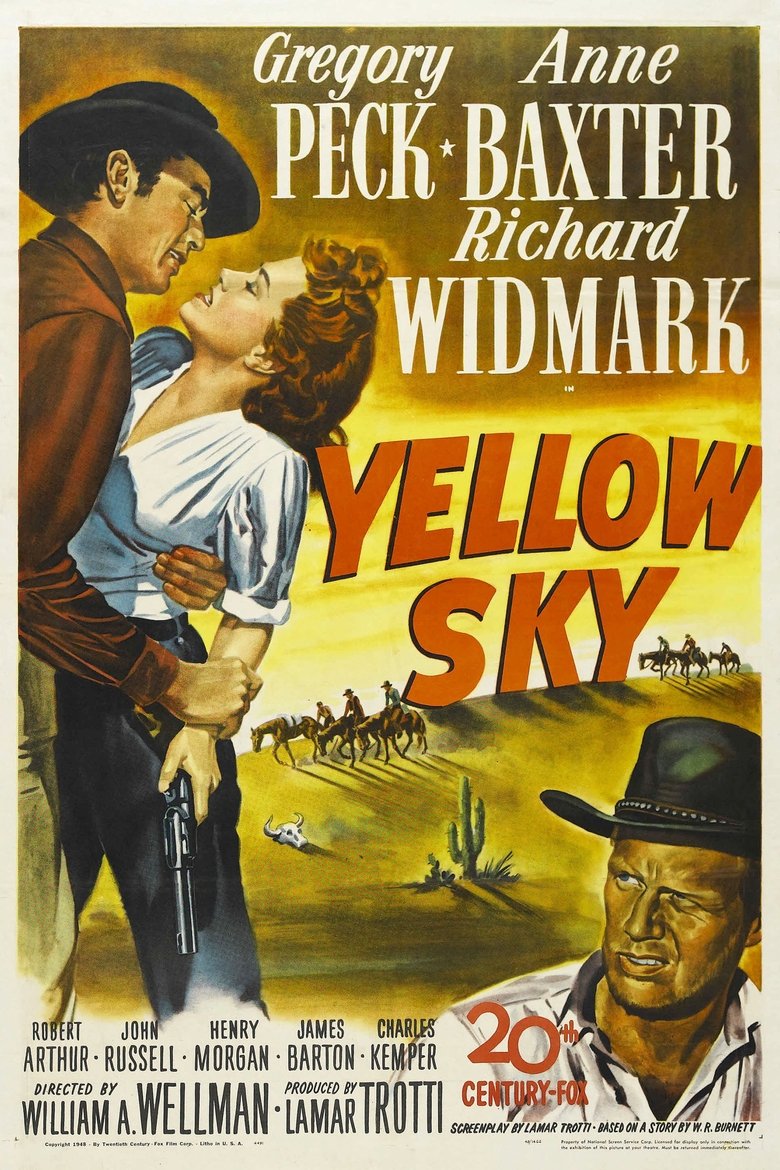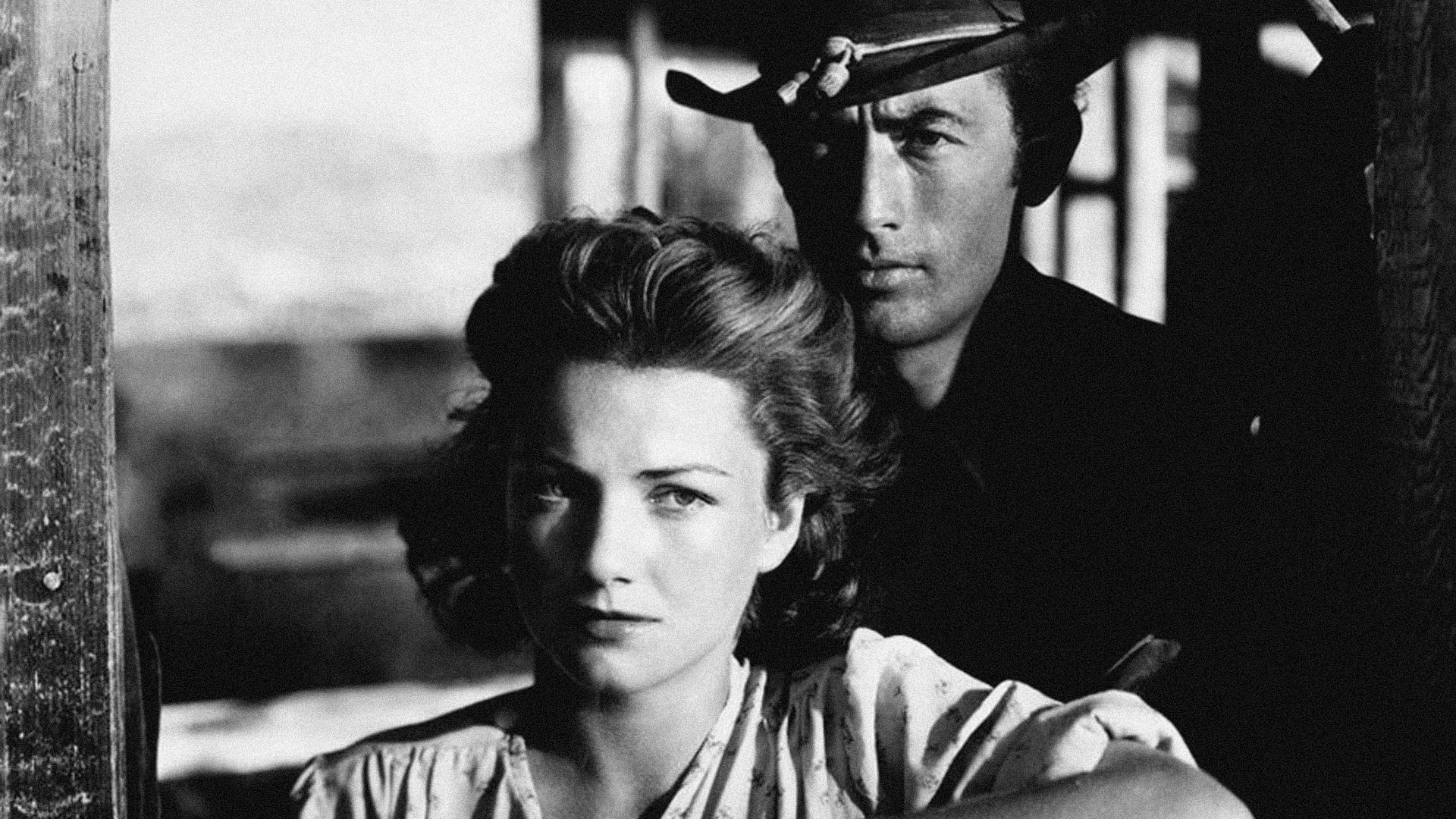Stay away from my men, and stop swinging those damn hips all over the place.
Stretch is the leader of bank robbing desperadoes, after their latest job they find the US Cavalry hot on their tail. Their only conceivable route of escape is to traipse over an enormous salt flat, low on water and bitten by the scorching sun, they happen to come across a ghost town named Yellow Sky. Here was once a prosperous town, now the only inhabitants are a crusty old prospector and his tomboy granddaughter. Soon the talk turns to hidden gold and it's not long before these desperate men will become conflicted in more ways than one. Be it greed, lust or the Apache, the day of reckoning is coming to Yellow Sky.
Yellow Sky is a technically stunning picture, directed with panache by William A. Welman, boasting starkly affecting black and white photography from Joseph MacDonald, and utilising the wonderful use of natural sounds. This picture is to me one of the shining lights of 1940s Westerns. Once the pulse racing pursuit of the robbers by the US Cavalry has finished, the film shifts into a master class of visual and dialogue driven delights. As the gang trundle across the desolate salt flat, the need for quenching the thirst hits the audience as much as it does the gang; I myself found that I was swigging rapidly from my cold can of beer! The Alabama Hills location is a sprawling, beautiful, never ending ode to the West, and then the actors kick in and do their stuff, and then some.
Gregory Peck plays the leader Stretch, an actor normally associated with a straight laced gait, here he is is weather worn and tired, his portrayal of Stretch as convincing as a role I have seen him tackle. Richard Widmark, in what I believe to be his first Western entry, is truly magnetic, a smirking, snarling Dude that you just know you couldn't trust if your life depended on it. Anne Baxter plays the sole female character of the piece (Mike), and she is pivotal to the whole film's strength, tough and full of spunk, her grasping of the situation in amongst these ragged men gives the piece it's time bomb ethic, and boy does Baxter do well with it.
All told there's no weakness' in the casting, they all do good work, and although the plot structure of the film is nothing out of the ordinary, the technical aspects coupled with the excellent writing on the page (W.R. Burnett story, Lamar Trotti screenplay) lift it way above many of its contemporaries. The ending has caused some consternation amongst Western critics over the years, and if I'm honest then it's not totally satisfactory to me personally, but it is in no way what so ever a bad ending, you just feel that the mood that had preceded it deserved something better. But as ever, it's up to the individual viewer to decide for themselves. 9/10




